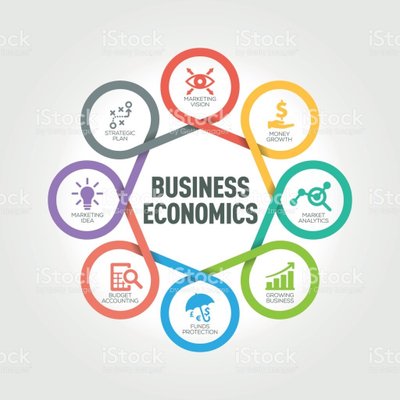Exploring How Business and Economics Shape Purchasing Habits
Wiki Article
Organization and Economics 101: Vital Expertise for Aiming Leaders
In today's swiftly evolving business landscape, aiming leaders have to grow a thorough understanding of basic tactical frameworks and financial concepts. Grasping concepts such as supply and demand, market frameworks, and competitors is not simply academic; these elements are crucial in shaping effective decision-making and cultivating technology. In addition, financial proficiency-- especially in capital monitoring-- works as a cornerstone for lasting development. As we explore these essential subjects, it ends up being evident that the junction of company acumen and economic understanding is important for future leaders to not just prosper but endure in their endeavors. What effects does this have for calculated management?Understanding Supply and Need
Supply and need are essential ideas that consistently underpin the auto mechanics of any kind of market economy. The connection between these 2 pressures determines the cost of services and products along with their schedule on the market. Supply describes the amount of an item that producers are prepared and able to cost numerous price levels, while demand shows the quantity that consumers agree and able to acquire.When demand enhances without a matching increase in supply, costs often tend to climb, signaling producers to boost outcome. Alternatively, if supply overtakes need, rates might drop, motivating manufacturers to reduce output. This dynamic interplay helps to achieve market equilibrium, where the quantity supplied matches the amount required at a specific price point.

Exploring Market Frameworks
Market structures specify the competitive atmosphere in which businesses run, dramatically affecting their pricing methods, outcome levels, and overall productivity. Understanding these structures is crucial for aiming leaders, as they shape company choices and market characteristics.There are four key sorts of market frameworks: best competitors, monopolistic competition, oligopoly, and syndicate. In a completely open market, numerous companies provide the same products, causing price-taking actions. Monopolistic competitors attributes several firms selling differentiated items, enabling for some prices power. Oligopolies are composed of a couple of leading firms that can influence market prices, commonly causing calculated interactions and affordable actions. Monopolies exist when a single company controls the market, resulting in the greatest level of pricing power and potential market inefficiencies.
Each market framework offers unique challenges and chances for services. Leaders should recognize these nuances to properly place their companies, create affordable approaches, and react to market changes. By understanding the ramifications of various market structures, striving leaders can make educated choices that drive their businesses toward sustainable success and development in an ever-evolving financial landscape.
Financial Principles for Leaders
Efficient management in organization necessitates a strong understanding of economic principles, as they underpin tactical decision-making check out this site and source appropriation. Leaders must understand vital principles such as capital monitoring, profitability evaluation, and economic forecasting. These components are vital in evaluating a company's monetary wellness and assisting its future instructions.Capital administration is especially important; it makes sure that the company keeps enough liquidity to fulfill its responsibilities while seeking growth opportunities. Assessing productivity permits leaders to recognize which services or items yield the greatest returns, enabling informed financial investment decisions. In addition, monetary projecting aids prepare for future earnings and expenditures, assisting in even more precise budgeting and source allocation.
Additionally, understanding economic statements-- such as balance sheets, income statements, and cash money circulation declarations-- furnishes leaders with the insights essential to make enlightened selections. This expertise fosters responsibility and transparency, enhancing stakeholder trust.
In today's vibrant company atmosphere, leaders need to be proficient at analyzing economic information to respond swiftly to market modifications. Ultimately, a strong grasp of monetary concepts encourages leaders to drive their organizations toward sustainable success while successfully taking care of threats and sources.
The Function of Competitors
Understanding the duty of competition is important for any organization intending to thrive in a saturated market. Competitors drives advancement and efficiency, engaging services to improve their items and services continually.In addition, competition can bring about much better pricing approaches. As firms vie for market share, they are incentivized to supply affordable rates, benefiting customers while difficult businesses to take care of costs properly. This dynamic fosters a culture of regular enhancement, pressing organizations to streamline procedures and enhance value proposals.
In addition, competition can promote market growth by motivating brand-new entrants. New services frequently present fresh concepts and methods, additionally enhancing the general market landscape. Companies should likewise be vigilant; too much competitors can lead to market saturation, reducing success for all players included.
Inevitably, understanding and browsing competitors is essential for leaders. By acknowledging its diverse duty, aiming leaders can make informed decisions that position their organizations for long-term success in an ever-evolving market.
Strategic Decision-Making
In the world of organization, critical decision-making is basic to adapting and attaining lasting purposes to altering scenarios. This process involves evaluating various choices and picking one of the most efficient strategy that straightens with the company's vision and goals. Effective strategic decision-making calls for a complete understanding of both exterior and internal atmospheres, consisting of market patterns, affordable dynamics, and business abilities.
Leaders have to gather pertinent information, examine it seriously, and forecast prospective end results. Furthermore, analyzing risks connected with each different enables leaders to create and anticipate difficulties backup plans.
Eventually, effective strategic decision-making equips companies to browse complexities, take advantage of possibilities, and respond proactively to risks. By growing a society that values educated decision-making, organizations position themselves to innovate and keep an one-upmanship in an ever-evolving company landscape. Aspiring leaders have to develop these skills, as their capability to make sound critical decisions will substantially affect their companies' success and sustainability.

Conclusion
Comprehending the function of competitors additional boosts calculated thinking, allowing leaders to browse complicated market characteristics. Eventually, this fundamental understanding outfits future leaders to innovate and align business methods with progressing market conditions, leading the method for sustained success and success.Comprehending these concepts is essential for aiming company leaders, as they create the foundation for efficient decision-making in prices, source allotment, and More Info market method. Understanding supply and need furnishes leaders to navigate the intricacies of market changes and consumer behavior.
read what he said Monopolies exist when a solitary firm manages the market, resulting in the greatest degree of prices power and possible market inefficiencies.
By comprehending the effects of numerous market structures, striving leaders can make educated choices that drive their businesses toward sustainable success and growth in an ever-evolving financial landscape.
Recognizing the duty of competition further improves calculated reasoning, making it possible for leaders to browse complex market dynamics.
Report this wiki page